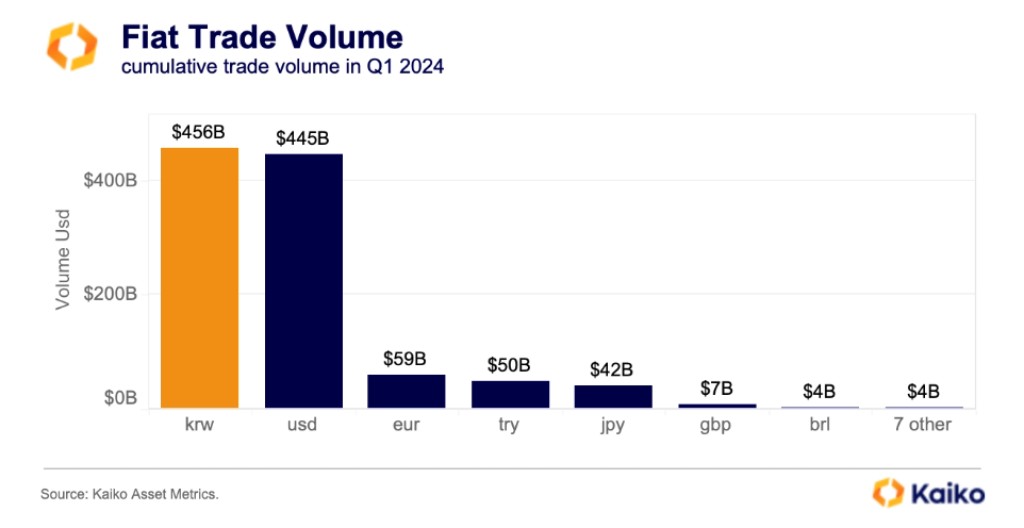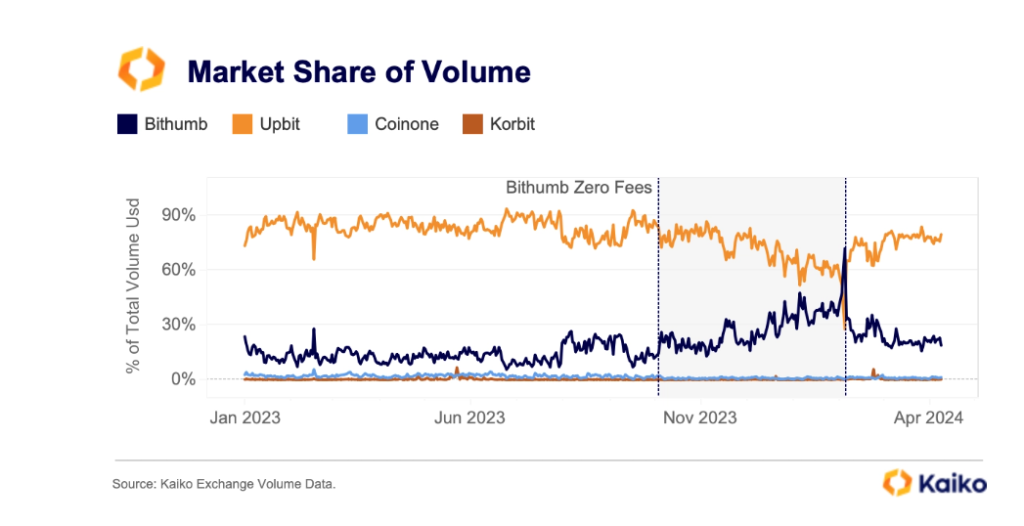According to a report, the Korean Won (KRW) surpassed other major fiat currencies, including the US Dollar (USD) and Euro (EUR), in terms of trading volume against cryptocurrencies. This significant shift indicates a substantial increase in crypto trading activity within South Korea, reflecting the country’s enthusiastic adoption of digital assets.
A recent Kaiko report (April 15th) reveals the Korean won has become the leading fiat currency in centralized crypto trading volume, exceeding the U.S. dollar with $456 billion versus $455 billion.


Several factors contribute to the prominence of the Korean Won in crypto trading:
- Regulatory Clarity: South Korea has made significant strides in providing regulatory clarity for the crypto industry, which has boosted investor confidence and encouraged participation in the market. Clear guidelines on cryptocurrency exchanges and trading activities have fostered a conducive environment for growth.
- Tech-Savvy Population: South Korea boasts one of the most tech-savvy populations globally, with high internet penetration rates and a culture that embraces innovation. This predisposition towards technology has facilitated the widespread adoption of cryptocurrencies and blockchain-based platforms.
- Strong Crypto Community: The Korean crypto community is vibrant and active, with numerous enthusiasts, developers, and entrepreneurs driving innovation and adoption. Community-driven initiatives, such as meetups, conferences, and educational programs, have played a pivotal role in expanding the crypto ecosystem.
- Demand for Alternative Investments: In a low-interest-rate environment, investors are increasingly seeking alternative investment opportunities to diversify their portfolios and hedge against inflation. Cryptocurrencies, with their potential for high returns and decentralized nature, have emerged as an attractive asset class for many investors.
- Cultural Factors: Cultural factors also influence the popularity of cryptocurrencies in South Korea. The concept of “chaebols” (large, family-owned conglomerates) has led to a distrust of centralized institutions, making decentralized cryptocurrencies an appealing alternative.
Despite its growing prominence, the rise of the Korean Won in crypto trading is not without challenges. Regulatory uncertainties, security concerns, and market volatility remain significant hurdles that need to be addressed to sustain this momentum.
Furthermore, the dominance of the Korean Won in crypto trading highlights the importance of understanding regional dynamics in the global crypto market. While the USD continues to serve as the primary fiat currency for many traders worldwide, localized preferences and regulations can significantly impact trading patterns and market dynamics.







